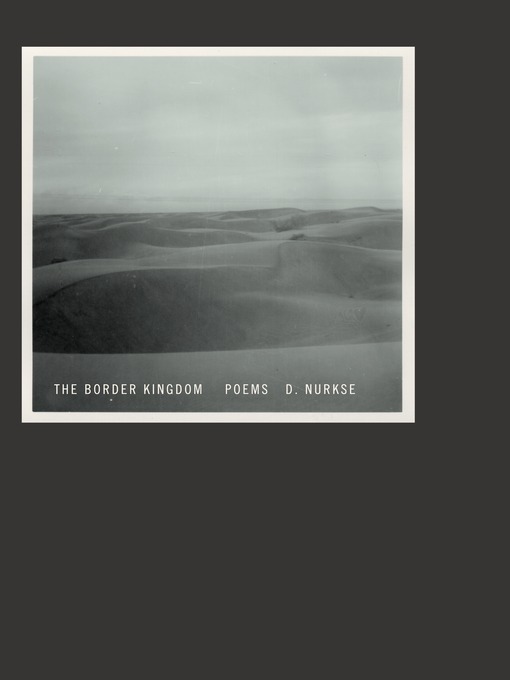
The Border Kingdom
Poems
کتاب های مرتبط
- اطلاعات
- نقد و بررسی
- دیدگاه کاربران
نقد و بررسی

July 21, 2008
Nurkse’s ninth book takes its title from the Latin origin of limbo (limbus
, hem or border). As the “second kingdom” (after Heaven), it edges on paradise; in Nurkse’s hands, limbo is obsessed with various borders—dusk, dawn, border towns, a fall out shelter. A group of 9/11 poems reveals a devastating divide between before and after, as horrors are captured in lovely, if prose-like, descriptions: “We filled the streets,/ squinting upward, shading our eyes,/ searching for the towers,/ or more planes, or rescue choppers,/ and a great silence built....” The first section contains biblical persona poems. In the more directly personal poems in the next two sections—“The Limbo of the Fathers” and “The Limbo of the Children”—Nurkse, also a writer on human rights issues, truly plumbs the depths of his muse. In beautiful, effortless lines, Nurkse discusses family, love, sex and children. In “Return to Underhill Road,” he employs his most affecting language to describe an ordinary family, in an ordinary home, experiencing something universal and timeless: “the child in the next room/ swathed in her crib/ makes every sign in every alphabet/ and sings every sound in every language/ until it will become a story—// two rooms, one marriage, / this trance, happiness.”

July 15, 2008
Nurkse's ninth collection (after "Burnt Island" in 2005) continues the poet's difficult emotional navigation between self and society within the grim context of a post-9/11 world. Solemn and unadorned, these poems incorporate nostalgia for a 1950s Brooklyn childhood and intimate reflections on family and fatherhood with a passionate awareness of human rights injustices being carried out in the name of national security. Poems like "The Missing" and "After a Bombing" probe the complex psychological dimensions of witnessing the World Trade Center tragedy ("We had a place, a function, something invisible inside us/ was needed desperately") and the nature of survivor's guilt ("The man who was late/ because of a lost key/ felt good fortune on his shoulders, / a tower he'd have to carry"). Anxiety penetrates every aspect of daily life ("they say the war will never end now, / there is no one left to surrender, / the enemy is just a swirl of pollen") and the poet's evocations of a naive, almost idealized American past only intensify its surreal distance from the life we experience today. Recommended for larger collections.Fred Muratori, Cornell Univ. Lib., Ithaca, NY
Copyright 2008 Library Journal, LLC Used with permission.

























دیدگاه کاربران